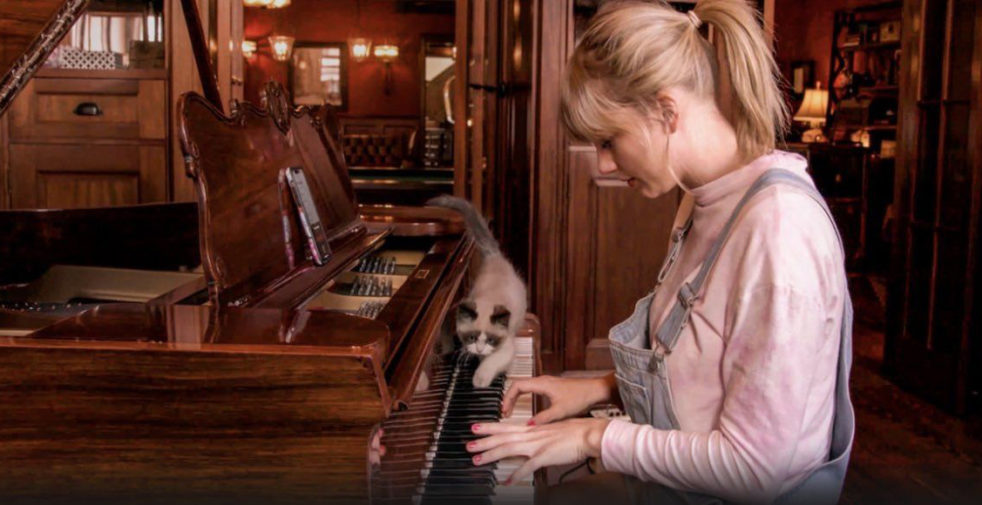Taylor Swift welcomes Lana Wilson — and consequently, millions of other people — into her life with a glimpse into her childhood diaries. That is how she sets the stage for her new Netflix documentary, “Miss Americana” — by allowing people a brief glimpse into the most personal parts of her life.
On Friday Jan. 31, Netflix released the highly-anticipated documentary, named for Swift’s most political song yet from her 2019 album, “Lover.” Directed by Emmy-winner Lana Wilson (“After Tiller”), “Miss Americana” offers a new side of Taylor Swift. Though Swift is known for her deeply personal and confessional songwriting, Lana Wilson introduces viewers to a side of Swift that has never been seen in her 15 years in the music industry. “Miss Americana” shows all the raw, emotional, heartbreaking and fulfilling moments of a career in the spotlight, and Swift takes aim at all of the things that have attempted to dismantle her over the years.
Viewers are able to watch Swift grapple with everything from political opinions, health issues, family struggles and a shifting mindset as she grows up through her 20s in a highly-speculated, overly-publicized environment. This is a rare opportunity, considering Swift’s entire persona has been built upon a balancing act of infamy and notoriety simultaneously.
A recurring theme in “Miss Americana” is Swift’s desire to be polite, to maintain the peace and play by the rules, a responsibility that is often placed on women in a patriarchal society and industry. Yet, Wilson takes this documentary as a chance to highlight Swift’s work to dismantle this foundation on which she had built her entire life, identity and career.
“My entire moral code as a kid — and now — is a need to be thought of as good,” Swift says in the opening scene. “It was all I wrote about. It was all I wanted — it was the complete and total belief system that I subscribed to as a kid.”
This idea permeates much of “Miss Americana”, and that is the most powerful aspect of this documentary. Opening with this idea humanizes Swift despite her iconic status. Fans, especially young women, are able to find pieces of themselves in this representation of Swift.
Wilson highlights a number of important moments in Swift’s life that deconstructed this belief system and those that put her life into perspective. In the midst of snapshots of Swift’s songwriting process, excitement in the studio, time with loved ones and Swift’s infamous cats, the documentary does not shy from difficult topics. Swift acknowledges a deeply personal and heartbreaking struggle with her mother, who had been diagnosed with cancer several years prior.
“Do you really care if the internet doesn’t like you today if your mom’s sick from her chemo?” Swift questions, once again attacking her need to be good.
“Miss Americana” takes another jab at this expectation of goodness: how it began to morph into a monster that affected Swift’s mental and physical health. In a strikingly vulnerable moment, Swift opens up about an eating disorder she dealt with in her 20s. Swift confesses to not eating in order to maintain a look she thought she was supposed to have.
“You don’t ever say to yourself, ‘I have an eating disorder,’ but you know you’re making a list of everything that you put in your mouth that day and you know that’s probably not right, but then again there’s so many diet blogs that tell you that’s what you should do.”
Perhaps the most significant catalyst for Swift’s mindset change was her 2017 sexual assault trial. Another difficult subject to address in an otherwise fast-paced documentary, Wilson and Swift find a way to do it justice. Swift powerfully acknowledges her privilege in her trial.
“The process is so dehumanizing. This is with seven witnesses and a photo,” Swift says of her trial.
She goes on to wonder what happens to other women who do not have these things — those with only their word as defense.
“I just wanted to say I’m sorry to anyone who ever wasn’t believed, because I don’t know what turn my life would’ve taken if people didn’t believe me when I said that something had happened to me.”
This moment is what propelled Swift to take a stance in politics, despite keeping her opinions quiet for over a decade. In her long-term effort to be “good”, Swift also kept quiet. Yet, all of these experiences catapulted her into a space to stand up against the injustices she sees in the world. In the midst of everything, Swift found her voice; she learned to deconstruct those ideals upon which she had built her life.
“I want to love glitter and also stand up for the double standards that exist in our society,” Swift says. “I want to wear pink and tell you how I feel about politics. I don’t think that those things have to cancel each other out. I want to still have a sharp pen, and a thin skin and an open heart.”
“Miss Americana” shines in its duality. It shows the mountains and the valleys of Swift’s life, the pink and the politics, the lighthearted joy and the heartbreaking hits. Most importantly, “Miss Americana” shows that these things can all exist harmoniously. Through it all, Wilson is able to string together a collection of moments that make Taylor Swift feel less like a stranger.
